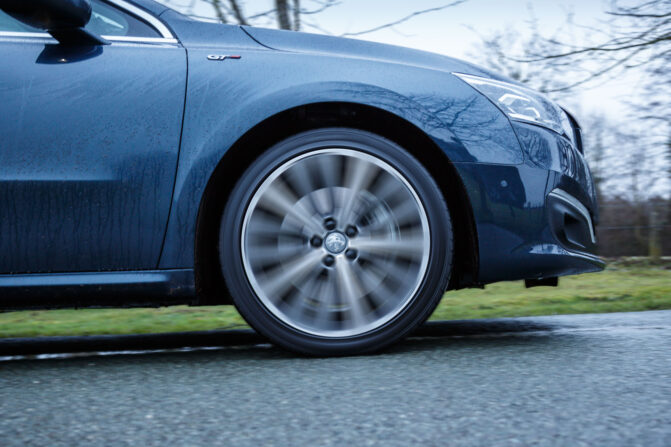Towing a vehicle can be intimidating, especially for those who aren’t experienced. According to Consumer Reports, safety should always be a high priority when towing a vehicle. This article will provide readers with some practical tips and tricks on how to stay safe while towing a trailer or another vehicle behind their own.
From equipment checklists and breakage prevention strategies right through the proper equipment adjustments for comfortable driving, this article offers helpful resources that beginners should become familiar with before attempting any heavy-duty tow job.
Having acquired over a decade of experience in the local towing business, we can provide some useful tips for all levels of towing. Whether you’re an experienced tow enthusiast or just starting off in the world of trailers and vehicles – join us as we explore ways of informed and safer road experiences!
Importance of Safety when Towing a Vehicle
Towing a vehicle requires special precautions in order to ensure the safety of both drivers and vehicle passengers.
Potential risks and accidents
Towing a vehicle without taking the right safety measures can lead to serious consequences such as damage to the suspension, brake system, and engine of the tow vehicle. Overloading a vehicle with too much weight can also cause brake failure, broken suspensions, blown-out tires, and even increase the risk of an uncontrolled sway or overcorrection mistake while driving.
Furthermore, inadequate safety training during this process may contribute to possible injuries for both parties involved in the procedure. The National Highway Traffic Safety Administration data suggests that fatal crashes resulting from towing activities often occur due to excessive speeding which can severely ramp up potential risks and damages caused when maneuvering a vehicle along highways or busy roads.
That is why it is so essential for anyone who plans on carrying out this type of operation to obtain adequate safety training and take extra precaution before running any kind of risks while driving an overloaded vehicle in order to prevent additional damage and reduce chances of dangerous accidents occurring.
Legal requirements
When towing a vehicle, it is essential to ensure you comply with all federal and state legal requirements. Failure to do so can result in fines or even dangerous collisions.
Trailer towing laws differ from one state to the other but regardless of where you are located, there are standards laid out by the U.S Department of Transportation (DOT) which must be adhered to including safety regulations, financial responsibility regulations for motor carriers, and compliance requirements for commercial vehicles that transport hazardous materials.
You should also pay special attention when traveling across state borders as each may have different trailer towing rules depending on weight limits and size restrictions among others variables making sure your towed vehicle complies with them otherwise fines may apply if not observed.
Pre-Towing Safety Measures
It is essential to double-check the load, trailer and equipment before departing on a journey, stay alert while driving, and utilize available safety features for enhanced protection.
Double-checking load and equipment
It is absolutely vital to double-check the load and equipment of a vehicle that is about to be towed in order to ensure safe transportation, reduce risks and accidents, and comply with legal requirements.
Before hitting the road it is important to inspect the trailer’s electrical wiring system for any damages or fraying wires; hooks should be securely fastened onto the trailer hitch ball mount; the trailer tongue weight needs to be balanced properly by distributing most of its weight onto vehicle’s rear axles; the safety chains must also be checked if they are correctly installed so one chain will stay firmly attached to the trailer tongue while another chain should be linked to the tow vehicle ensuring security during incidents like an accident or hook failure. Finally, secure hitches using necessary pins and for more enhanced safety.
Ignoring such steps can pose threats both from damage inflicted on either party, as well as unsafe outcomes involving less control which could result in serious injury.
Staying alert and engaged while driving
When towing a vehicle or trailer, it is essential for drivers to stay vigilant and extra attentive.
As a tow truck driver, spotting hazards from other vehicles like sudden lane changes or erratic speeding has become increasingly important in order to avoid accidents. Also, maintaining an appropriate following distance with the towed vehicle helps create more room for safe braking and maneuvering.
Additionally, reversing safely with a trailer takes patience and practice; specific techniques such as back-and-forth steering motions should be used in combination with additional spotters in order to prevent any damage during the process of backing up your load.
Utilizing safety technologies
When towing a vehicle, safety should always be the primary concern. By utilizing certain established safety features, one can reduce potential risks and make sure that they adhere to legal requirements for safe towing.
Additionally, different vehicles come with various safety technologies designed differently so it is important to understand how these might be impacted by towing your vehicle. From semi-active cruise control systems that slow down or speed up depending on your current speed limits and surroundings, to radar-assisted steering wheels that guide you in tight corners or around curves; all of these technologies are meant not only for comfort but also for improved safety both during the drive and when stopping at rest areas while on a long journey.
Tips for Safe Towing
Always maintain a safe distance and speed while towing, as maintaining too close of a proximity can lead to collision or accidents.
Maintaining safe distance and speed
When towing a vehicle, it is essential to maintain an adequate distance between yourself and other vehicles as well as keep the speed under control. By doubling the normal following distance of your car in front of you, this will allow more time for braking should sudden stops or hazards arise.
Furthermore, driving too fast may cause loss of control when turning corners and can also increase the sheer weight on your tires due to wind resistance – leading to tire blowouts or other accidents.
To ensure safety while traveling with a trailer-tow, reduce speeds by 10 miles per hour – not exceeding 60 miles per hour. This helps to minimize risk from potential runaway trailers or sudden jerks which can destabilize its load set up.
Additionally, always keep gear low when moving downhill too – especially in manual transmission cars where brakes are continually used during descent without relieving strain on them over extended distances.
Keeping an eye on weather conditions
Weather conditions are essential when towing a vehicle, as different weather conditions have an impact on overall safety. Although this may seem simple enough, it can be very difficult to always keep track of changing weather patterns while navigating busy roads with a heavily loaded trailer.
Being mindful of ever-changing conditions allows drivers to respond accordingly and avoid heavy gusts caused by strong winds, navigate safely in rain or snowfall, stay alert for sudden storms with lightning and thunder and manage the traffic signs that appear after hail showers.
Drivers should also be aware of potential road hazards that come along with ice or sleet on the street. Knowing local weather patterns will help one identify storm warnings quickly and take proactive measures such as keeping extra distance between other vehicles or decreasing activities if necessary.
Trusting professionals for heavy-duty towing
It is critical to trust professionals for heavy-duty towing because they possess the specialized training and expertise required for safely handling larger vehicles. This type of towing can be dangerous if performed improperly, but experienced tow truck operators understand the best practices used in this specialized operation that needs to conform with legal requirements too.
They have direct access to proper tools, equipment, and resources so that the secure transportation of a towed vehicle or cargo is guaranteed. With their knowledge and experience in assessing both weight and size limitations through routine vehicle inspections along with considering road conditions such as weather, traffic patterns etc., they’re able to provide successful heavy-duty service without risking potential accidents or damages.
Entrusting your towing needs on reliable roadside assistance companies will grant you assurance of conducting safe operations from the start until the end while satisfying all applicable laws without hassle.
Conclusion
Safety is of the utmost importance when towing a vehicle, as any slight negligence can lead to potential accidents and injuries. It is vital that all legal requirements are met before towing starts, such as ensuring your load does not exceed weight restrictions.
Additionally, double-checking all equipment and making sure the wheels are immobilized properly goes a long way in preventing damage or injury for both the tow driver and towed vehicle passengers.
Tire weight ratings may differ from one model of car to another, so it’s essential you understand exactly what type of tire (and/or wheel) can be used with each respective vehicle while still meeting safety standards.
Utilizing safety technologies like lane departure warnings and collision detection systems make maneuvering safer during transits and flatbed tow trucks provide additional levels of protection by securely placing vehicles on their platform; reducing risk of damages drastically due extreme weather conditions and more..
We hope this blog post has been useful for your towing endeavors! If you ever need any towing assistance, please feel free to contact us for around the clock towing services!



